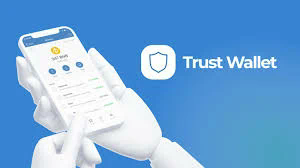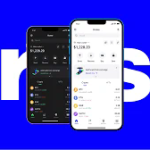# Can Trust Wallet Be Blocked? An In-Depth Analysis
## Introduction to Trust Wallet
Trust Wallet is a multi-cryptocurrency wallet that is designed to provide a secure and user-friendly platform for managing digital assets. Originally launched in 2017 and later acquired by Binance, Trust Wallet allows users to store, send, and receive various cryptocurrencies while providing access to decentralized applications (dApps) through built-in Web3 browsing capabilities. With features like private key storage, a simple interface, and support for numerous tokens, Trust Wallet has gained significant popularity among cryptocurrency users.
## Understanding Wallet Functionality
### Types of Wallets
Cryptocurrency wallets can be categorized into two primary types: custody (or centralized) wallets and non-custody (or decentralized) wallets. Custody wallets, such as those offered by exchanges, hold users’ private keys and, by extension, their cryptocurrencies. Non-custodial wallets like Trust Wallet, on the other hand, allow users to control their private keys, thus providing a higher level of security and control.
### Key Management
Trust Wallet utilizes a hierarchical deterministic (HD) architecture for generating private keys, meaning that a single seed phrase can generate multiple private keys. Users have complete control over their private keys, which are stored locally on their devices rather than on a centralized server. This independence is one of the primary appeals of using Trust Wallet, but it also raises questions about the implications of potential blocks or restrictions.
## The Concept of Blocking in Cryptocurrency
### Regulatory Landscape
The blockchain and cryptocurrency space operates in a complex regulatory environment, which varies significantly from one jurisdiction to another. Regulatory bodies worldwide have been introducing legislation concerning anti-money laundering (AML) and combating the financing of terrorism (CFT), leading to increased scrutiny of cryptocurrency exchanges and wallets.
### What Does “Blocking” Mean?
In the context of cryptocurrency, “blocking” can refer to several actions: the limitation of access to the wallet, the disallowance of transactions, or the freezing of funds. Given that Trust Wallet is a non-custodial wallet, the concept of blocking takes on unique dimensions, particularly regarding user autonomy.
## Can Trust Wallet Be Blocked?
### Network-Level Blocking
While Trust Wallet itself cannot be blocked by any centralized authority due to its decentralized nature, users might face network-level restrictions. For example, Internet Service Providers (ISPs) in certain jurisdictions may impose barriers that limit access to cryptocurrency-related services, including wallet applications. However, this does not equate to blocking the wallet itself but rather preventing access to specific services.
### Account Blocking by Exchanges
If users linked their Trust Wallet to centralized exchanges for transactions, they could potentially face account restrictions or blocks on the exchange’s end due to various reasons, such as suspicious activity or not complying with KYC (Know Your Customer) regulations. In such instances, while the Trust Wallet would remain fully functional, accessing the funds might be complicated if they were initially transacted via the exchange.
### Government Intervention
Certain governments have imposed restrictions on cryptocurrency usage, which can lead to users facing challenges when trying to operate wallets like Trust Wallet. This can involve outright bans on the use of cryptocurrency, limitations on transactions, or increased scrutiny on transactions above a certain threshold. However, the decentralized nature of Trust Wallet itself makes it resistant to outright banning.
## Implications of Blocking
### User Autonomy and Control

One of the defining features of non-custodial wallets like Trust Wallet is the empowerment of users through control of their private keys. Should blocking or restrictions occur, users retain the ability to access and transact with their cryptocurrencies, given they possess their seed phrase and private keys.
### Security Concerns
While the ability to operate without central authority reduces some risks, it also places the onus of security entirely on the user. If a user faces a blocking situation due to local laws or ISP restrictions, they are still vulnerable if they haven’t implemented proper security measures to safeguard their wallet.
### Potential Workarounds
Users may explore various tactics to navigate blocking situations. For instance, virtual private networks (VPNs) can help access cryptocurrency services denied in certain regions. Additionally, decentralized platforms can provide alternatives to traditional exchanges.
## The Future of Trust Wallet and Regulatory Challenges
### Evolving Regulation
The global regulatory landscape for cryptocurrency is rapidly evolving. As governments and financial institutions become more involved, the future of wallets like Trust Wallet will depend heavily on how regulations are framed and enforced. Users may need to remain vigilant about potential changes that could affect their ability to access or use their wallets.
### Technological Advancements
Ongoing technological advancements in the blockchain sector could also play a crucial role in how wallets function and interact with the regulatory environment. Innovations such as layer-two solutions may help in optimizing transaction efficiency and bolstering privacy, making it harder for authorities to impose restrictions.
## Conclusion: Understanding and Navigating the Risks
In summary, while Trust Wallet itself cannot be blocked, various external pressure points—such as network restrictions, governmental regulations, and account limitations by exchanges—can complicate user experience. The inherent design of Trust Wallet as a non-custodial wallet empowers users but also requires them to navigate the complexities associated with regulatory frameworks and potential network issues. Users must remain informed and proactive about securing their digital assets and understanding the implications of the diverse factors that could impact their access to cryptocurrencies.
As the cryptocurrency landscape continues to evolve, so will the dynamics that affect wallets like Trust Wallet. Staying educated and adaptable will be paramount for users wishing to thrive in this exciting and rapidly changing domain.


